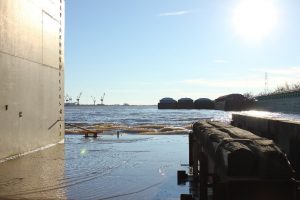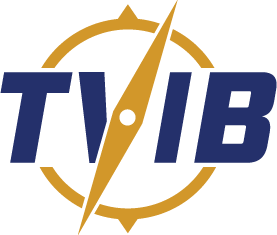TRAINING: TVIB Launches Drydock and Internal Structural Examination (DD/ISE) Certification Course
 Subchapter M brought many new changes to the towing vessel industry, and now that we are two and a half years removed since the Coast Guard issued the first Certificates of Inspection (COIs), towing vessel operators are beginning to address compliance with another key component of the regulation – periodic drydock and internal structural examinations for credit. 46 CFR 137.300 requires all towing vessels to undergo a drydock and internal structural examination at least once in five years for vessels that are not exposed to salt water more than six months in any 12-month period. Alternatively, vessels exposed to salt water more than six months in any 12-month period must undergo these examinations at least twice in five years, with no more than 36 months between intervals. That means vessels operating in salt water who obtained their COIs early in the implementation process are coming due for their first credit drydock and internal structural examination.
Subchapter M brought many new changes to the towing vessel industry, and now that we are two and a half years removed since the Coast Guard issued the first Certificates of Inspection (COIs), towing vessel operators are beginning to address compliance with another key component of the regulation – periodic drydock and internal structural examinations for credit. 46 CFR 137.300 requires all towing vessels to undergo a drydock and internal structural examination at least once in five years for vessels that are not exposed to salt water more than six months in any 12-month period. Alternatively, vessels exposed to salt water more than six months in any 12-month period must undergo these examinations at least twice in five years, with no more than 36 months between intervals. That means vessels operating in salt water who obtained their COIs early in the implementation process are coming due for their first credit drydock and internal structural examination.
TVIB recognized the need to train surveyors on Subchapter M’s expectations for compliance regarding these events, as there is not currently another course available to the market that focuses on drydock and internal structural examinations. Additionally, TVIB knew that vessel owners and managing operators would need guidance on how their vessel’s TSMS would tie into this set of surveys, for those that chose the TSMS option for obtaining a COI. Over the course of a year, TVIB staff worked alongside a committee made up of TVIB-certified surveyors, NAMS and SAMS surveyors, recently retired Coast Guard marine inspectors, port engineers and other stakeholders with extensive backgrounds in vessel maintenance and repairs, to create course content that is relevant, engaging and provides a consistent, comprehensive process to conducting drydock and internal structural examinations. Mike Rushing, of Rushing Marine Service in Jackson, MO, is the primary course instructor. He and staff spent many hours in shipyards during course development, creating a rich library of photo and video images that help drive student/instructor conversations about vessel conditions and suitability.
The core content of this three-day course, which is currently being held virtually but plans to transition back into a classroom setting when COVID-19 restrictions have been eased, focuses primarily on establishing the role of the surveyor, TPO and Coast Guard during survey activities, how to assess vessel hull structure damage both inside and out, assessing hull thickness, how to apply ABS Rules and NVIC 07-68, among other currently available published resources, and how to write acceptable drydock and internal structural examination reports, while adhering to Subchapter M requirements. There are practical exercises for utilizing the TSMS during the examinations as well. While the course was designed to train towing vessel surveyors, towing vessel owners and managing operators, shipyard personnel and other stakeholders will gain valuable insights into this piece of the Subchapter M compliance puzzle as well. Feedback from the attendees at the first courses has been overwhelmingly positive. One attendee noted “Illustrations that were provided were what you would actually see out in the field. The DD-ISE course explained things for someone on any level of experience, and the dialog with other attendees was excellent.”
The next course offering is scheduled to be held virtually on February 9-11, and again on May 4-6. Registration is now open and can be found at www.thetvib.org.
TVIB is THE TPO YOU KNOW AND TRUST
